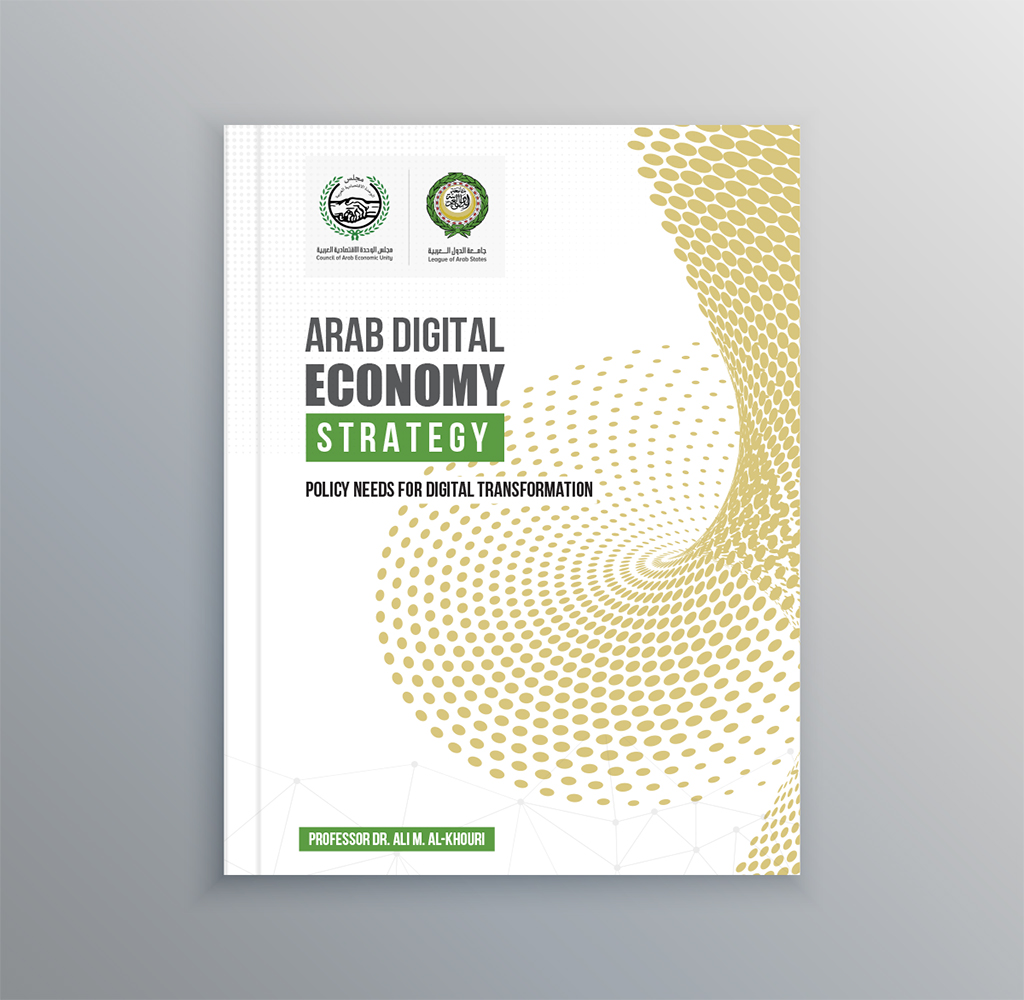The book includes precise recommendations for decision makers and digital transformation policy makers in the Arab region
Abu Dhabi.. The Arab Federation for Digital Economy has issued a new book entitled: “The Strategy of the Arab Digital Economy: Requirements for Public Policies for Digital Transformation” in English, written by Dr. Eng. Ali Mohamed Al-Khouri, Advisor to the Council of Arab Economic Unity, and President of the Arab Federation for Digital Economy, with the aim of enabling interaction Global about the book’s content and recommendations made.
The book explains that the digital future is at risk of unregulated, chaotic growth, which poses a challenge to countries that are still operating according to traditional economic models, and that general thinking in the Arab region in facing challenges still follows a “reactive methodology” and temporary solutions with short-term prospects. This is confirmed by the current indicators of its competitive capabilities. The book indicates that in order to address this, visions and efforts must be based on strategies based on the scientific method, and with it, Arab countries must develop a clear understanding of the main challenges before starting the stage of seizing opportunities and drawing and implementing their policies and action plans.
The book demonstrates that it is essential for policy and decision makers to have an accurate understanding of the intricate details of digital transformation projects, the role that modern technologies can play in changing the rules and regulations of current practices, and how to develop more innovative digitized business models that can build resilient and sustainable economies and social systems.
The book explains that the current data and indicators of the global economy push to form a worrying picture of the weaknesses in the Arab countries, which in turn may threaten the stability of the entire region, especially with regard to the “knowledge decline”, the increase in unemployment rates” and the “weak economic performance”; These are challenges that call for dealing with them as key strategic indicators that require urgent action plans designed to reflect different ways of thinking and adapt to the nature of the requirements and challenges of the twenty-first century and address them as positive forces and factors.
The book notes the importance of accelerating the implementation of a set of initial reform projects to encourage the development of more dynamic and advanced digital business environments in the Arab region, in parallel with the development of educational and health care systems, strengthening agricultural capabilities to achieve food security goals, focusing on economies based on industry and production, and dependence On Arab digital platforms, especially to support e-commerce practices and other activities based on participation and mutual benefit in order to achieve the best ways to invest in manpower, property and goods in general.
The book included a quick and brief review of the objectives of the “Arab vision for the digital economy” and its components, and explained that in order to transform this vision from its “theoretical” form to “truth and tangible reality,” it needs to implement a sequential and organized set of programs and initiatives, but above all, it is necessary to have Some general policy guidelines to ensure the strategic link between goals and objectives on the one hand, and to prepare the appropriate environment to enable implementation and achievement of expected results on the other side. The book mentioned that the most important axes of these principles that must be paid attention to are: the general framework of policies, human capital, the knowledge society, the business sector and the private sector, research and innovation, and joint action.











